'Racism was systematic and mainstream - but determination paid off': 9 life lessons from Britain’s first Black cycling champion
Maurice Burton has earned his place as a change-maker and pioneer in British sporting history, but it took a lot of hard graft, writes Paul Jones
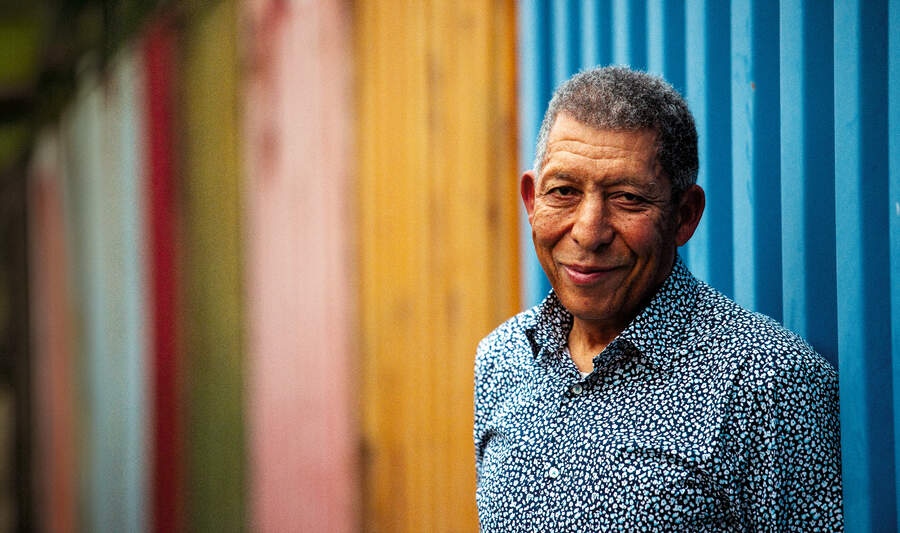
In 1974 Maurice Burton won the national 20km title, becoming Britain’s first ever Black cycling champion. Yet, as the 18-year-old stepped onto the podium, the crowd booed – a response that typified the racism he experienced throughout his career. After being overlooked for Olympic selection, despite having beaten those selected, he moved to Belgium to race professionally on the six-day circuit, becoming the first Black six-day rider for over 75 years.
In his recently published biography, co-written with me, Burton set out to assert his place as a change-maker and pioneer in British sporting history. In writing the book together, Burton and I met many times over the course of a year, in pubs, at his bike shop De Ver Cycles, and on bike rides. This feature, drawing on our conversations, lays out Burton’s nine key life lessons from his rich and varied experience as the first Black British cycling champion, six-day star and later as a successful business owner and community leader in South London.
You can't be what you can't see
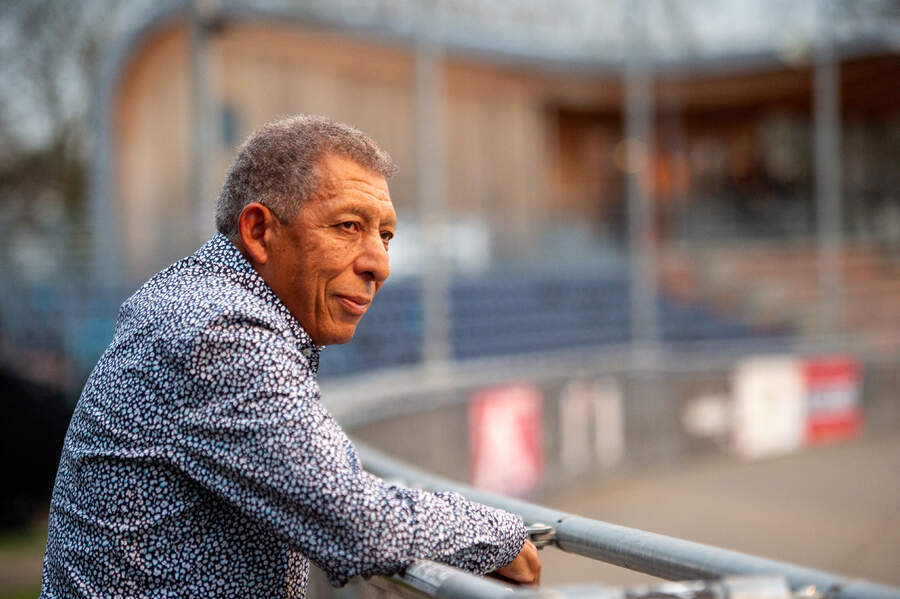
I knew about Herne Hill, but I didn’t know how to get in. There was no information for people like me; there were no Black people doing it. Unless you knew someone, you didn’t know. I was lucky: my school took me to Herne Hill. The VC Londres coach Bill Dodds told us how it worked. One thing stood out: he said, “From here, you can go to the Olympic Games.” I knew at that moment that that was where I wanted to be.
Certain riders are a class apart
I was sprinting at Paddington in 1973 with Steve Heffernan; one of us was going to win. Suddenly, somebody ripped past us, and we both thought, who the hell was that? It was Danny Clark, Olympic silver medallist who became a six-day legend. I met a guy recently who was in the same race; he said Danny asked if he could get through but he didn’t hear him. The next thing he heard was Danny shout, “For f***’s sake, mate, will you get out of the f***ing way!” and he came past like a motorbike.
Determination is everything
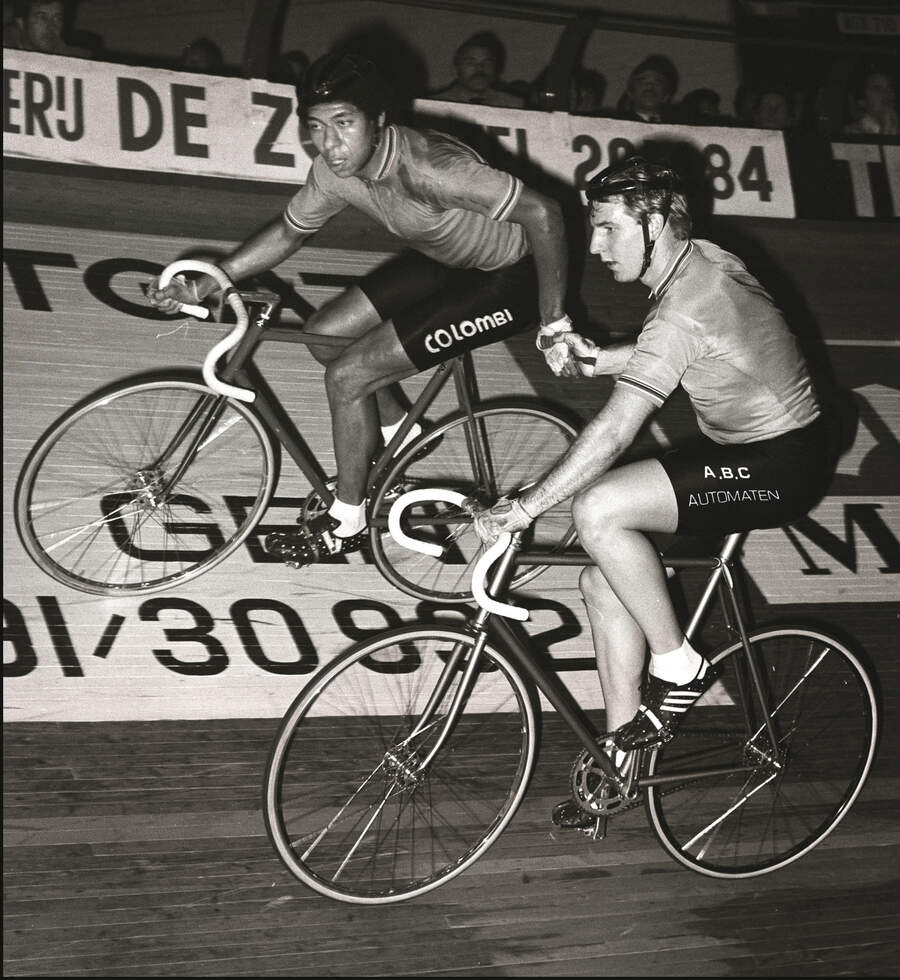
When I stood on the podium in Leicester to receive my jersey as national champion in 1974, boos rang out around the velodrome. They didn’t like the colour of my skin. In 1975, I won gold in the team pursuit and silver in the Madison. I was 19-years-old, winning my third title. I crashed out in the scratch, but then they disqualified me, claiming I pulled Heffernan off his bike, which I didn’t. It was typical of how I was treated and it kept happening. I won’t give up on anything. It’s determination, a desire to see it through. My experiences made me more determined to race in Belgium.
Starting out on the continent is hard
I travelled to Ghent on Christmas Eve 1974 with no money and nowhere to stay. I went straight to the Christmas Day track meeting. The bike shop Plum Vainqueur had a stall with Rosa Desnerck, the owner, who knew a butcher who took in foreign cyclists. I slept among piles of newspaper waiting to be collected. Later I stayed with Albert Beurick, who had supported Tommy Simpson back in the day. I was the only cyclist; the other lodgers were three drunkards who’d miss the toilet and urinate all over the floor and seat. It wasn’t the best set-up. Those early days were a struggle.
Remember the hardest road
I was reliant on prizes and primes – money was tight and I had to win. In my first race in Ghent I came fifth, which wasn’t enough. I needed to pull my finger out, so I drew up a budget and worked out a training programme. The mainstay involved a road from Ghent to Zelzate, 20km each way, doing a five-minute warm-up, then full-gas out and back. In the winter I rode fixed, as less could go wrong. Other days I would do 160km behind the derny at pace, and in the afternoons I went to the track. I did this for two weeks and won my next race. Even now, when things look bad, I remember the road to Zelzate.
The latest race content, interviews, features, reviews and expert buying guides, direct to your inbox!
Racism was systematic and mainstream
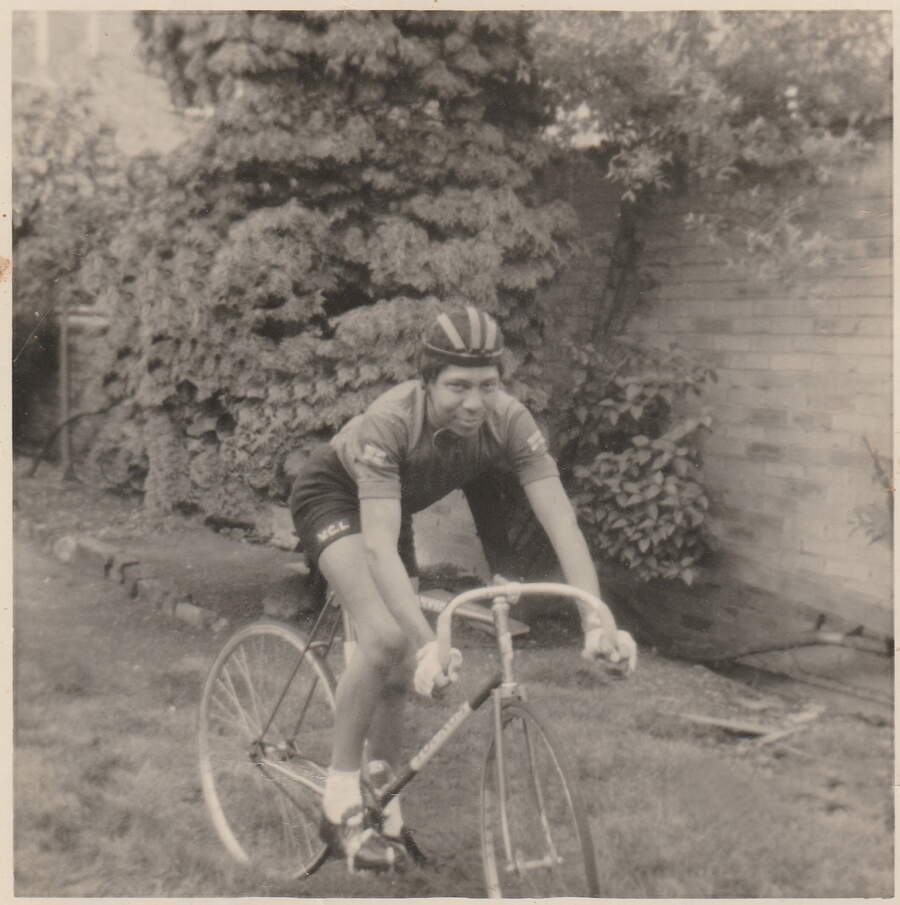
I came back to the UK to try and get selected for the Olympics in 1976. British Cycling invited me to training sessions, and then said I should ask for an invite. Ultimately they said I could go but I had to pay for myself. I was beating all the riders in the squad. I don’t know what they were trying to get from me or what they thought my ‘value’ was. Who else had to pay? It got to the point where it was so embarrassing for them that they had to bring me in. I gave it my best shot. I tried, but it didn’t work. I’m not disrespecting the riders who made it, but I am saying I didn’t get a fair chance.
Though things weren’t perfect in Belgium either, some riders like [Patrick] Sercu and [René] Pijnen saw me as another human being, a bike rider, not just a Black man. Others were threatened by me. When I turned up to race the Dusika Velodrome in Vienna, the first thing I saw was the back page of the newspaper, with the headline “Will the n***** beat Sercu?”.
You're at the mercy of the money-men
The promoters were powerful. Early on, Paul Medhurst and I rode for the points jersey. We took laps, got flowers, showed ourselves to the crowds, demonstrated that we were worth a contract. The promoter often decided the pairings. You might be driving the taxi, looking after a local star, and you wouldn’t get a placing, but the crowd got to see stars like [Stephen] Roche and [Francesco] Moser, and they went home happy. Mostly we were racing flat-out; we had no choice. If the group was going at 50kph, then you had to go at 60kph, for however long it took. Ultimately, if your performance dropped then the promoter would get somebody else in. It was cut-throat, with 300 riders competing for 16 slots on the circuit.
You don't get to choose the ending
My last six-day was in Buenos Aires [Argentina] in 1984. The tyre blew out and I went down really hard, breaking my thigh bone. This kind of injury requires huge force – car crashes or gunshots. I made up my mind while in hospital that it was time to change direction. There were just too many things happening. You have to remember that I never wanted anything else, from an early age. In hindsight, stopping racing was a good thing, but when you take that away and stop, for the first time ever, it’s hard.
Sometimes taking a risk pays off
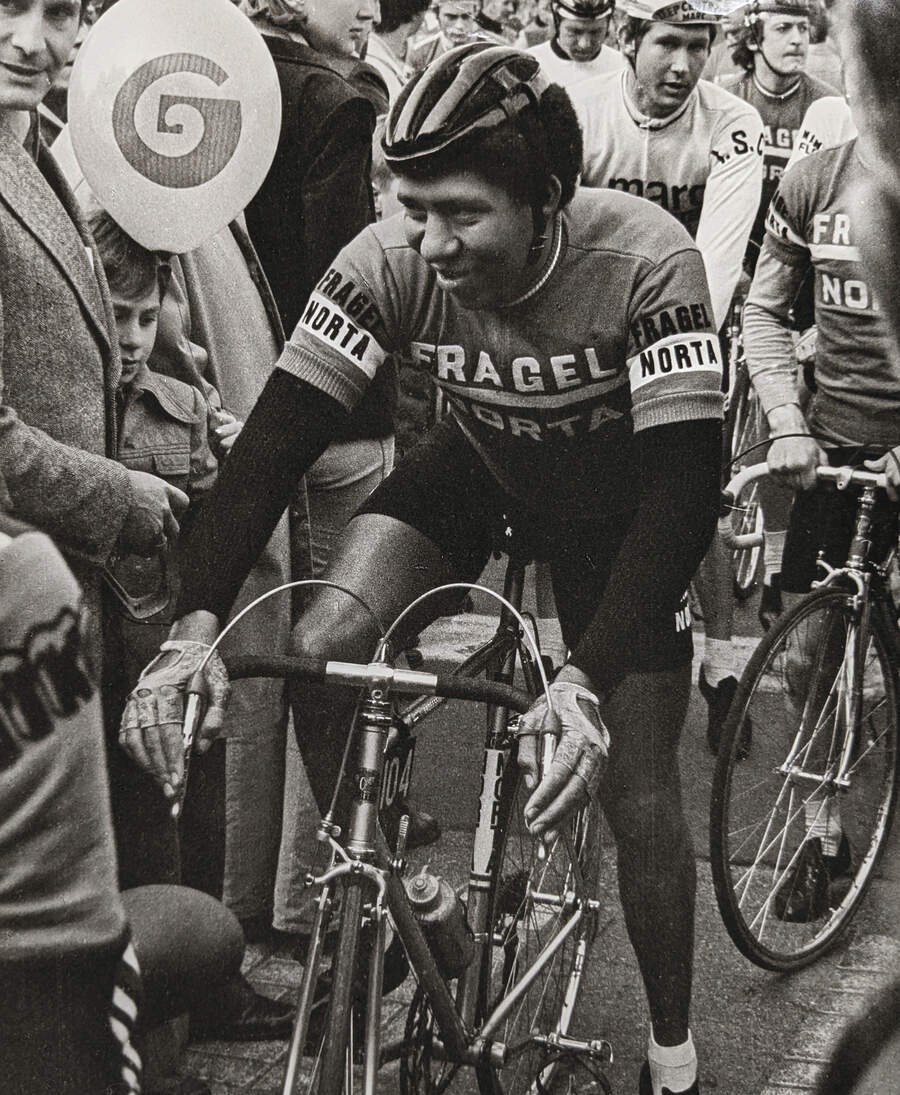
I took over De Ver Cycles in 1987. I’ve been there nearly 40 years. It hasn’t always been easy. At one point, the bank was demanding £800 that day. I was in the shop with Mia, my wife, my head in my hands, when a chap strolled in. He said, “I want to buy a bike, I’ve got £800.”
Similarly, just before the pandemic I did some deals and had bikes everywhere. I had to sell the stock by June. It was a risk, but when the pandemic hit, no one else had any bikes. I sold them all, grabbed every other bike I could lay my hands on. Looking back, things happen for a reason – I took a risk and it paid off .
Maurice Burton's career timeline
- 1955 Born in South London
- 1972 Wins Junior Devil national title
- 1973 Wins Junior Sprint
- 1974 Selected for Commonwealth Games, New Zealand
- 1974 Wins White Hope Sprint and three-mile race at the Good Friday Meeting
- 1974 Wins 20km scratch National title at Leicester
- 1975 Races in Ghent for the first time
- 1975 Beats world champions Daniel Morelon and Nels Fredborg at Trinidad Invitational
- 1975 Wins Golden Wheel and scratch at the Good Friday Meeting
- 1975 Wins National title in team pursuit, silver in the Madison
- 1976 Second at Ghent Amateur 6, wins Silber Adler in Cologne
- 1977 Turns professional, wins Ghent omnium with Paul Medhurst against Gerrie Knetemann, Rik Van Linden
- 1977-1983 Competes in 56 six-day races, including 16 during the 1980- 81 season alone
- 1984 Sustains career-ending injury at the Buenos Aires six-day
- 1987 Becomes owner of De Ver Cycles in Norbury, London
- 2020 CS7 renamed ‘The Maurice Burton Way’
- 2023 Inducted into the British Cycling Hall of Fame
The full story of Maurice’s extraordinary life is told in The Maurice Burton Way, out now in hardback (£20, Bloomsbury).
Paul Jones is the co-author of The Maurice Burton Way (Bloomsbury).